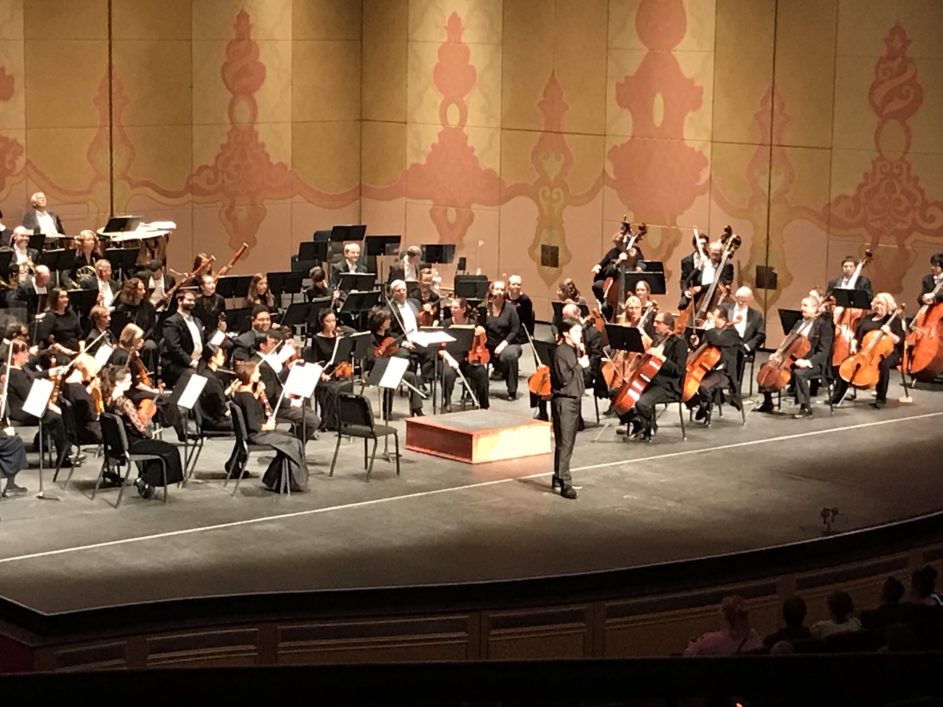At the Knoxville Symphony Orchestra’s October Masterworks concert at the Tennessee Theatre Thursday night, conductor Aram Demirjian gave two fairly lengthy introductions to music on the program that addresses issues of people against forces in power: Beethoven’s “Egmont Overture” and Shostakovich’s “Fifth Symphony.”
Then he conducted excellent, robust performances of Beethoven’s 1810 “Overture to Egmont,” followed by guest violinist Robyn Bollinger’s gorgeous performance of Tchaikovsky’s 1878 “Concerto for Violin and Orchestra in D Major,” Op. 35.
Unfortunately, they were followed by a less-than-confident performance of Shostakovich’s encapsulation of the Russian peoples’ struggle against the repressive Stalin regime.
It was a dichotomy of the first half of the program being performed by the very good orchestra I have become accustomed to hearing under the direction of Lucas Richman, and now under Demirjian, set against the second half of the program in which the strong performance I am used to hearing was largely missing in the Shostakovich.
It wasn’t a disaster. The piece was played through and there were beautiful moments of lovely solo and ensemble playing by several of the musicians. But it wasn’t the kind of performance by either musicians or conductor that matched up to the first half of the program, or that I expected.
The issue may have been immaturity. Shostakovich’s “Fifth Symphony,” like Mahler’s “Sixth Symphony” and several others, requires life experiences and maturity in both the conductor and the musicians to understand the messages in the music, and then to convey the depth and power of it in performance.
That requires determination, conviction and the confidence to “go for it.”
Bollinger played the concerto brilliantly. There were especially wonderful moments when the melody was begun by Hannah Hammel’s flute, or Claire Chenette’s oboe, then continued by Gary Sperl’s clarinet before seamlessly moving to Bollinger’s violin.
At the end of the first movement, she received a standing ovation and roars of approval from the audience. Both she and Dimirjian reminded the audience that there was more to come.
It was a breach of what has become, over the last hundred years, standard concert etiquette of the audience expected to hold applause until the very end.
It wasn’t ignorance on the part of the audience. It’s part of East Tennessee culture to be gracious and show appreciation. And, Tchaikovsky’s powerful first-movement ending demands response. Also, both Demirjian and Bollinger made small gestures that cued the audience to jump in, something both will learn to correct as their careers move forward.
Both lowered their arms and stepped back, subtle movements that turned the audience loose.
Conductors and performers learn to control these moments by keeping their arms raised, signaling that the music will continue.
Aside from superbly played performances of both the Beethoven and the Tchaikovsky, the highlight of the evening may have been Bollinger’s enthralling encore performance of the “Largo” third movement from J. S. Bach’s “Sonata in C Major for Unaccompanied Violin,” BWV 1005.
It held the excited audience spell-bound.
My bet is that Friday night’s Masterworks audience will hear a much better execution of Shostakovich’s “Fifth,” as well.
Tickets may be purchased by calling the KSO box office at 865-291-3310.

